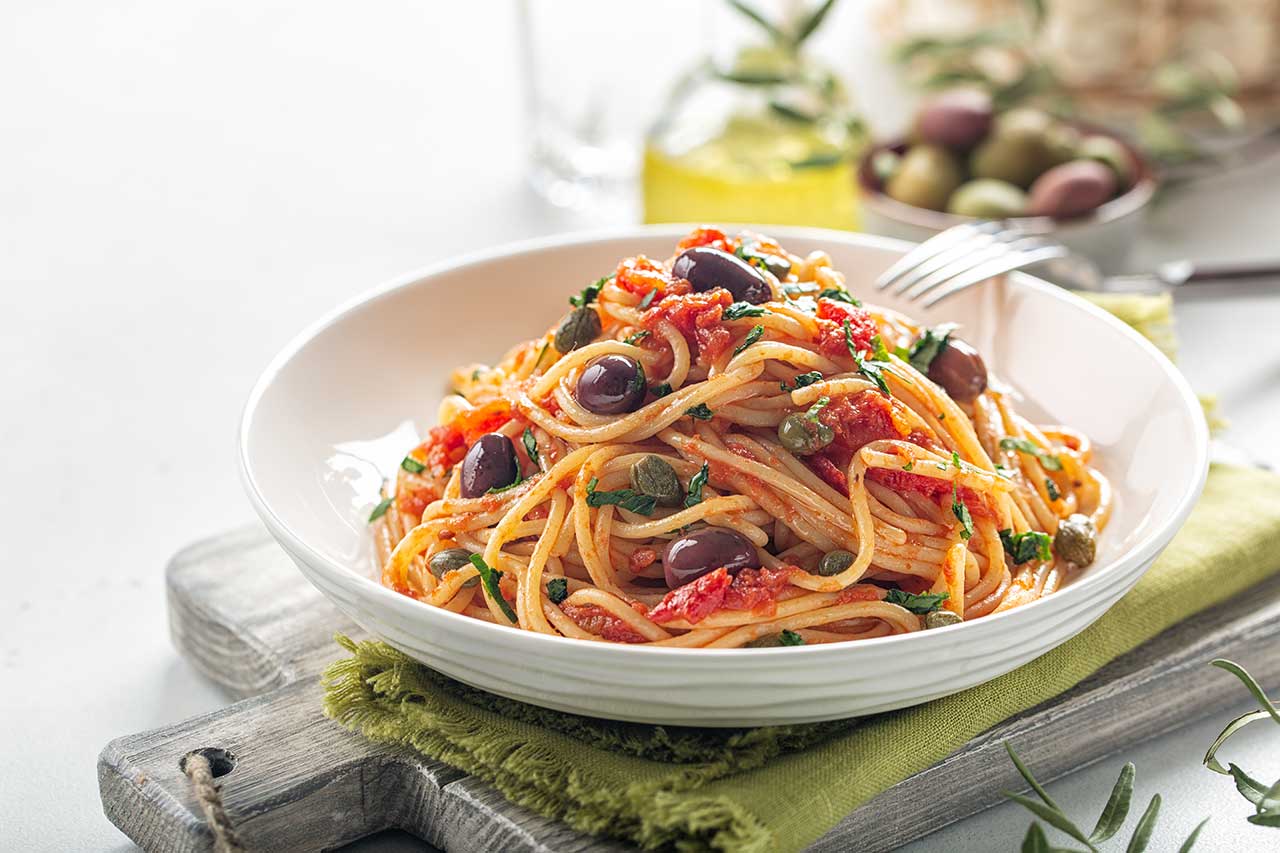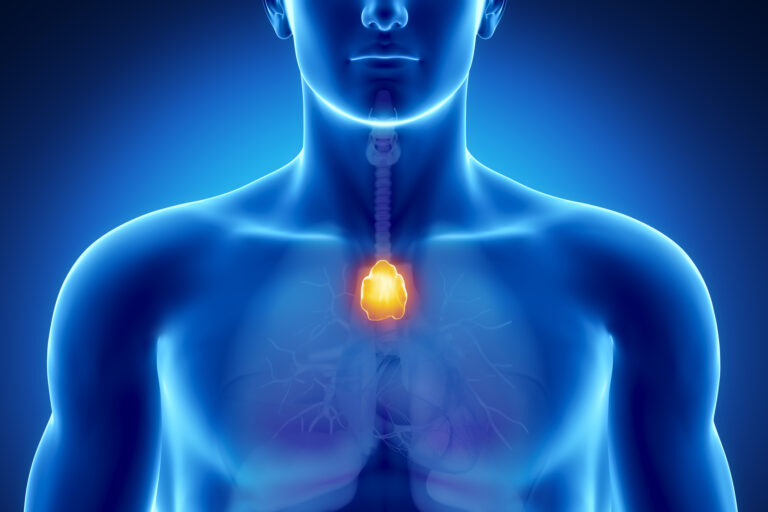
La miastenia gravis (MG) es una afección común y potencialmente mortal que afecta a millones de personas. Aunque puede ser aterrador si le han diagnosticado MG, afortunadamente existen muchas... opciones de tratamiento que puede ayudarle a retomar el rumbo de su vida. Su médico podría recomendarle seguir una dieta específica para minimizar los síntomas de la MG.
Obtenga autorización previa para IgIV
¿Qué es la miastenia gravis?
Miastenia gravis La MG es una enfermedad autoinmune crónica, lo que significa que el sistema inmunitario ataca erróneamente las propias células del cuerpo. En la MG, los anticuerpos bloquean, alteran o destruyen los receptores utilizados para la contracción muscular. Cuando esto ocurre, se interrumpe la comunicación regular entre los nervios y los músculos, lo que debilita los músculos esqueléticos. Actualmente no existe cura para esta afección; sin embargo, la atención médica inmediata puede ayudar a controlar los síntomas de la MG y a reducir o mejorar la debilidad muscular. Existen diversas terapias para ayudar a reducir y mejorar la debilidad muscular, pero no existe un tratamiento definitivo que sea el más adecuado para todas las personas con MG.
Síntomas de la miastenia gravis
La MG afecta principalmente a los músculos voluntarios del cuerpo, especialmente los de la boca, la garganta, los ojos y las extremidades. síntomas de MG incluyen:
- Debilidad en el cuello
- Caída de uno o ambos párpados
- Visión borrosa o doble
- Cambio en la expresión facial
- Dificultad para tragar
- Dificultad para hablar
- Dificultad para respirar
- Problemas para caminar
- Debilidad en los brazos y las manos
- Un cambio en la expresión facial
En casos graves, la MG puede causar insuficiencia respiratoria, que requiere atención médica de emergencia inmediata.
Debido a que los síntomas de MG pueden ser similares a los de otros trastornos autoinmunes, es importante consultar a su médico para obtener un diagnóstico adecuado.
La mejor dieta para la miastenia gravis
Mantener una dieta equilibrada y rica en nutrientes esenciales es crucial para la salud general. Garantiza el funcionamiento óptimo del cuerpo, mantiene los huesos fuertes y proporciona la energía necesaria para alcanzar sus objetivos. actividades de la vida diaria (AVD) y objetivos de ejercicio.
La MG puede presentar algunos desafíos, como debilidad muscular, que podría dificultarle comer ciertos alimentos. Medicamentos utilizados para tratar la MG Puede afectar su apetito, el metabolismo de su cuerpo, su peso corporal y su capacidad para hacer ejercicio.
Para facilitar la obtención de los nutrientes que tu cuerpo necesita, debes considerar algunos cambios para:
- Los tipos de alimentos que comes y la forma en que los preparas.
- La forma en que masticas la comida.
- La forma en que te sientas cuando comes.
- La forma en que planificas tus comidas.
Cada uno de estos temas se trata con mayor detalle a continuación.
Obtenga asistencia para el copago de IgIV
Habla con un especialistaLos tipos de alimentos que puedes comer y cómo prepararlos
En general, debe consumir alimentos variados, procurando elegir aquellos bajos en grasas, grasas saturadas y colesterol. Incluya abundantes verduras, frutas, cereales integrales y alimentos proteicos. Tanto el azúcar como la sal deben consumirse con moderación. Si consume bebidas alcohólicas, hágalo con moderación, en mínimas cantidades o, si es posible, sin consumirlas.
Una excelente manera de empezar es optar por alimentos más suaves y apetitosos, ya que son más fáciles de masticar y tragar. Algunos ejemplos son las verduras picadas, machacadas o en puré, el pescado, la sopa, la ensalada de huevo, las pastas, el yogur, el tofu, la quinoa, la avena remojada durante la noche, el puré de manzana, los plátanos y los batidos.
Los alimentos ricos en ciertos nutrientes también pueden ser muy beneficiosos, como los tomates, los frijoles blancos, las lentejas, los plátanos, los boniatos, la calabaza de invierno, la remolacha, las espinacas, los albaricoques, los aguacates, las naranjas, el yogur, los hongos portobello y el brócoli. Estos alimentos son ricos en potasio, necesario para una contracción muscular adecuada. Algunos medicamentos para la miastenia gravis (MG) pueden causar diarrea o depleción de potasio, lo que puede resultar en niveles bajos de potasio en el organismo, lo que justifica el consumo de alimentos ricos en potasio.
Cocinar los alimentos al vapor, escalfar, estofar, hervir a fuego lento, hervir y asar puede ayudar a que muchos alimentos duros se ablanden y sean más fáciles de masticar. Humedecer los alimentos sólidos con salsa, caldo o yogur también es una buena técnica para ablandarlos. Elija fuentes de proteínas más blandas como tofu, pescado y legumbres. Al elegir carnes, opte por la molida, desmenuzada o picada para facilitar la masticación. Los líquidos deben espesarse a la consistencia recomendada por su médico o logopeda para evitar que entren accidentalmente en sus pulmones.aspiración), lo que puede provocar neumonía por aspiración.
La forma en que masticas la comida
Debe intentar cortar la comida en trozos del tamaño adecuado de un bocado, y puede que tenga que limitar cada trago a media cucharadita o menos para evitar el riesgo de aspiración. Debe intentar comer despacio, masticando bien los alimentos para asegurarse de no tragar trozos grandes enteros. Por último, asegúrese de sentarse erguido y tenga cuidado de no inclinar la cabeza hacia adelante ni encorvarse al tragar. Otros consejos útiles incluyen descansar entre cada bocado y antes de las comidas si es necesario. También puede ser útil no hablar mientras come para conservar la energía.
La forma en que planificas tus comidas
Planificar bien tus comidas puede tener un impacto muy positivo en tu bienestar general. Un consejo útil es comer varias comidas pequeñas a lo largo del día en lugar de comidas más abundantes y con menos frecuencia. Ponte como objetivo comer tus comidas más abundantes más temprano en el día. Durante estos momentos, normalmente tendrás más energía, lo que te facilitará masticar y tragar la comida.
Obtenga su dosis de IgIV
Infusión en casaAlimentos que las personas con miastenia gravis deberían considerar evitar

Las personas con MG deben evitar ciertos alimentos, ya que pueden aumentar el riesgo de aspiración. Además, es recomendable limitar los alimentos con alto contenido de azúcar y sal añadidos. Algunos ejemplos de alimentos que se deben limitar o evitar son:
- Alimentos secos, crujientes o desmenuzables que pueden resultar difíciles de tragar
- Productos de pan seco, como bagels, muffins y sándwiches (si tiene dificultad para tragar, es mejor evitar los alimentos que adquieren una textura pastosa en la boca).
- Carnes duras que son difíciles de masticar y tragar.
- Exceso de alimentos envasados con alto contenido de sal o azúcar añadidos
- Alimentos con grandes cantidades de cafeína, como el café y los refrescos
- Comidas picantes y calientes
- Ciertos productos lácteos si eres intolerante a la lactosa
Tenga cuidado, especialmente al beber líquidos a sorbos, ya que pueden llegar fácilmente a los pulmones y provocar tos o atragantamiento. También debe tener especial cuidado al tragar alimentos que contengan líquidos y trozos, como sopa de pollo con fideos o cereales con leche. La gravedad de la afectación muscular para tragar varía según la persona con MG. Una evaluación con un logopeda puede determinar qué consistencia de alimentos y líquidos es la más adecuada para usted.
Consejos para comer con miastenia gravis
Lo mejor es intentar comer alimentos que no dejen residuos en la garganta para evitar que te cueste tragar. Por ejemplo, evita estos alimentos si dejan residuos en la boca:
- Alimentos desmenuzables (galletas, galletas, patatas fritas)
- productos de pan seco
Consejo: Si decides comer estos alimentos y/u otros alimentos duros, se recomienda humedecerlos antes de hacerlo.
Para reducir la fatiga al comer, algunas consideraciones incluyen:
- Comer varias comidas pequeñas en lugar de tres comidas grandes al día
- Comer la comida más abundante cuando tienes más energía en el día.
- Cortar alimentos más grandes en bocados más pequeños
Hable siempre con su médico y dietista antes de implementar suplementos nutricionales adicionales en su dieta.
Conclusión
Aunque la miastenia gravis es una enfermedad sin cura, su manejo ha mejorado con los años gracias a los avances en la medicación. Al aplicar los principios básicos de una buena nutrición, una persona con MG puede llevar una vida más plena y saludable. La calidad de la dieta es clave para una vida saludable. Si bien las personas con MG pueden tener que modificar la textura de los alimentos e incorporar nuevos alimentos blandos, deben procurar consumir una variedad de alimentos para satisfacer sus necesidades. Recomendaciones diarias de nutrientes.
¿Puede ayudar la IgIV?
Información gratuita sobre el tratamiento con IgIVPreguntas frecuentes
¿Puede una buena dieta curar la miastenia gravis?
Hasta la fecha, no existen investigaciones basadas en evidencia que demuestren que una buena dieta pueda prevenir la MG. Sin embargo, seguir una buena dieta puede ayudar a reducir los síntomas.
Si está tomando corticosteroides, considere los siguientes ajustes en la dieta:
- Aumentar la ingesta de potasio para ayudar a reponer el potasio perdido debido a la medicación.
- Asegúrese de tener suficiente calcio para apoyar la salud ósea y reducir el riesgo de pérdida ósea.
- Limitar el consumo de sodio para ayudar a minimizar la retención de líquidos.
Incluso si no se toman corticosteroides, es importante llevar una dieta saludable y hacer ejercicio. recomendaciones diarias de nutrientes Puede tener muchos beneficios. Además, algunos suplementos pueden ser útiles para controlar los síntomas. Por ejemplo, en un estudio piloto de las personas con deficiencia de vitamina D y MG, la suplementación de vitamina D3 a 800 UI/día redujo la fatiga muscular en un 38% en personas con MG.
¿Puede el estrés empeorar sus síntomas?
Sí, el estrés causa tensión muscular, lo cual puede empeorar los síntomas de la MG. Puedes controlar tu nivel de estrés mediante la meditación y ejercicios de respiración profunda, pero si no tienes tiempo para estos ejercicios o sientes que no te ayudan, siempre deberías consultar con tu médico sobre un plan de tratamiento personalizado.
¿Puede el alcohol empeorar los síntomas de MG?
El alcohol puede causar visión borrosa, pérdida del equilibrio y dificultad para hablar. Beber con moderación Puede que no cause daño, pero asegúrese de consultar primero con su médico antes de consumir alcohol.













